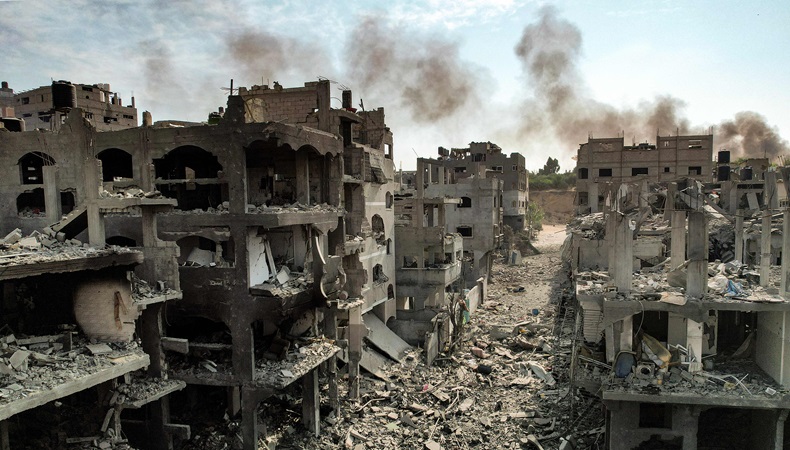The Israel-Gaza War is Not Only a Humanitarian Crisis, But Also a Geopolitical Time Bomb

The ongoing war between Israel and Gaza, which has entered its third month, has already claimed more than 40,000 lives, mostly civilians, and displaced more than 2 million people, according to the UN.
The humanitarian situation in Gaza is dire, as the Israeli blockade and airstrikes have destroyed the infrastructure, water, electricity, and health systems of the besieged enclave. The international community has failed to broker a lasting ceasefire, let alone a political solution, to end the bloodshed and suffering.
But the war is not only a humanitarian crisis but also a geopolitical time bomb that could explode at any moment and engulf the whole region in a wider conflict. The war has already triggered a series of clashes and confrontations between the US, Iran, and their respective allies and proxies, raising the risk of a direct confrontation between the two arch-rivals.
The article by The Guardian¹ reports that the US has accused Iran of supplying weapons and training to Hamas and Islamic Jihad, the Palestinian militant groups that control Gaza and have fired thousands of rockets into Israel.
Keep Reading
The US has also accused Iran of supporting the Houthi rebels in Yemen, who have launched drone and missile attacks on Saudi Arabia and the UAE, the key Arab allies of the US and Israel. The US has responded by increasing its military presence and assistance in the region, and by conducting airstrikes and naval operations against Iranian and Houthi targets.
Iran, on the other hand, has accused Israel of being behind a series of assassinations, sabotage, and cyberattacks on its nuclear and military facilities, as well as its oil and shipping industries. Iran has also accused Israel of supporting separatist and terrorist groups in Iran, such as the Kurdish PKK and the Baloch Jundallah. Iran has vowed to retaliate and defend its interests and allies in the region, and has increased its support and coordination with Hamas, Islamic Jihad, Hezbollah, and the Houthis.
Let us be warned that the war could escalate further and involve other actors and issues, such as Syria, Lebanon, Iraq, Turkey, Egypt, Jordan, Russia, China, and the nuclear deal. The war could also destabilize the fragile balance of power and security in the region, and undermine the prospects of peace and cooperation.
All in all, the situation concludes by calling for an urgent and comprehensive diplomatic intervention by the UN, the EU, and other regional and international actors, to end the war and address its root causes and consequences.
There should be a strong urge for the parties to the war and their backers to exercise restraint and responsibility, and to respect international law and human rights.






